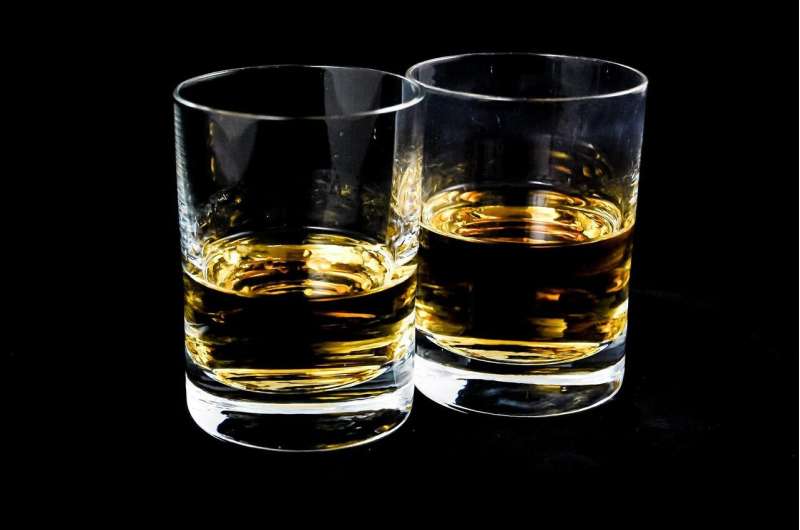Physical pain is a key factor in alcohol consumption relapse after a period of abstinence
The study has also shown changes in an area of the brain related to motivation for drug intake, and in a second experiment they have shown that the kappa-type opioid receptor (a protein) is key to causing these animals to relapse.
Research by the Department of Pharmacy and Pharmaceutical Technology and Parasitology of the University of Valencia (UV) has shown in a preclinical experiment with rats that physical pain induces relapsing with alcohol consumption. The study, published in journal PAIN, has also shown changes in an area of the brain related to motivation for drug intake, and in a second experiment they have shown that the kappa-type opioid receptor (a protein) is key to causing these animals to relapse.
Several studies have emphasized that suffering physical pain can trigger relapses in alcohol consumption and that it can be a key reason for initiating a compulsive consumption that leads to addiction. Along the same lines, the UV research group led by Lucía Hipólito has shown in a study that pain induces relapse when it develops during alcohol withdrawal in female rats.
"We have discovered one of the neurobiological bases that can explain the relationship between the relapse of alcohol consumption and physical pain, thanks to alterations that occur in the kappa opioid receptors in the nucleus accumbens, an area of the brain closely related to the motivation for taking drugs," explains the researcher.
The study has also concluded that this increase in alcohol consumption is related to anxiety or depression. This negative affective state induced by forced abstinence from alcoholic beverages causes it, in combination with pain, to become stronger and persist after reintroducing addiction in female rats. This is how the research team has shown that aggravation due to anxiety pain is a key factor in the increase in alcohol intake after a period of abstinence. As Hipólito indicates, "it can be said that pain increases the effects of not ingesting alcohol or accelerates those that can lead to a relapse."
In a second line of research, the authors –among them Jesús Lorente, Javier Cuitavi and Yolanda Campos, also from the same research group– have not only studied these alterations, but have also verified that when they blocked the opioid receptor kappa with a drug, called Norbinaltrophimine, relapse does not occur. Thus, the author states that they have studied the functionality of the drug for these cases, but it could have uses for other pathologies. "The problem is that they are causing some adverse effects in the early stages of clinical research that are difficult to manage. Our research group is now focused on how we could improve the pharmaceutical form, that is, how to administer it to avoid its side effects," she emphasizes.
On the other hand, Hipólito also points out the interest of the differences based on the sex of the rats, since the results have only been verified in females. In observational clinical studies, although there are women, their presence is usually lower than that of men, causing the representative sample to often not be valid. "We believe that there may be some bias when studying the events that can lead people to relapse, because there are studies that show that men tend to enter treatment programs more than women. Luckily now, interesting data are being published about this in terms of gender, but it is still too early for the sample to be equitable," argues the researcher.
- Karlston
-

 1
1



Recommended Comments
There are no comments to display.
Join the conversation
You can post now and register later. If you have an account, sign in now to post with your account.
Note: Your post will require moderator approval before it will be visible.